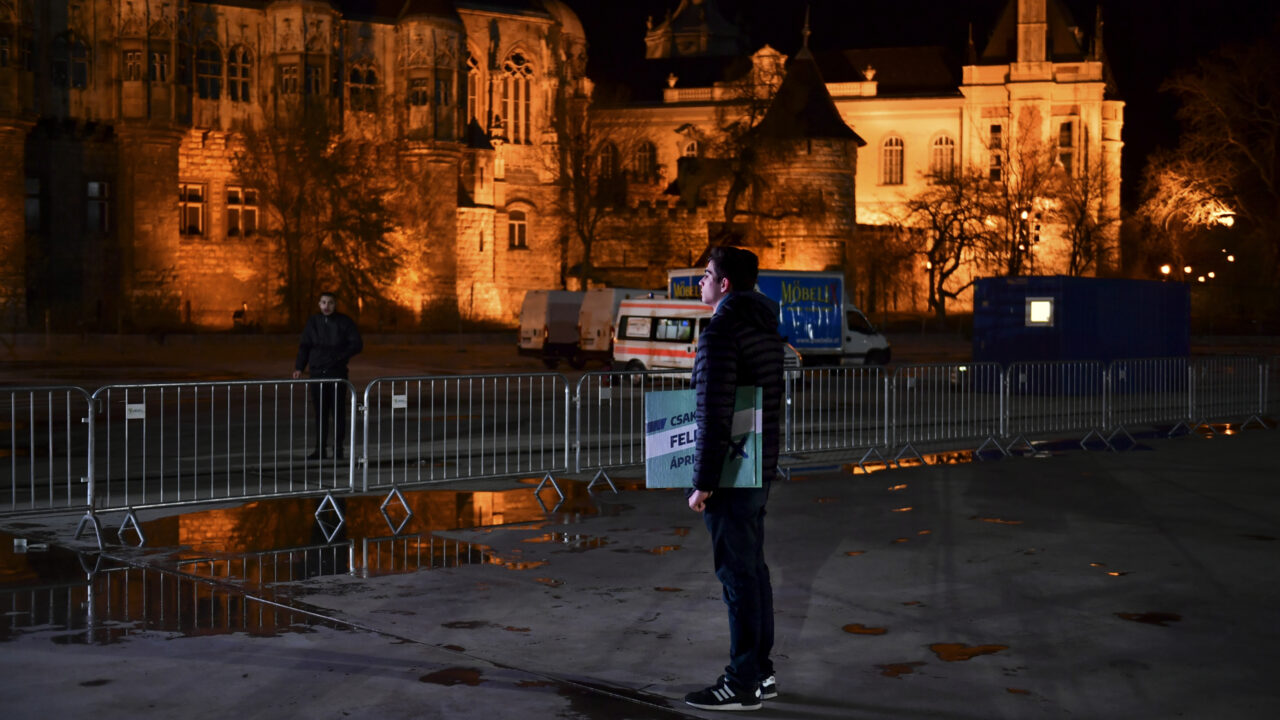Law or less: Why Orban’s rule threatens the European project
The goal of preserving European unity could hinder the EU’s fight against democratic backsliding in Hungary. To remain a community of values, the union needs to keep up the pressure on the country’s leader
The rule of law is fundamental to the European Union’s constitutional identity. If breaches of the rule of law occur within a member state, the European Commission may censure that country by launching its conditionality mechanism. It can withhold EU funding if rule of law violations, such as ineffective prosecution of corruption, affect the EU’s financial interests or the management of the EU budget – a right that the Court of Justice of the EU upheld on 16 February.
Earlier this month, Hungary became the first EU member state against which the Commission had triggered its mechanism. The EU’s move came just two days after Prime Minister Viktor Orban’s Fidesz party won a fourth consecutive parliamentary election, roundly defeating an opposition that had run on a platform of ending more than a decade of democratic backsliding and corruption. By activating its rule of law conditionality mechanism, the EU has put the fight against authoritarianism back on the agenda – and not before time.
In fact, the proceedings may have come too late. In November 2021, the Commission accused the Hungarian government of failing to prosecute corruption cases effectively, undermining the independence of the judiciary, and overseeing huge deficiencies in public procurement – a serious risk to the protection of the financial interests of the EU. Now, Orban’s parliamentary majority is fuelling concerns that EU leaders could accept the existence of authoritarian countries in the union as a long-term reality, which would endanger the EU’s status as a normative project. How credible is the EU if its member states disregard human rights, freedom, democracy, equality, and the rule of law as set out in Article 2 of the Treaty of the EU?
The union’s rule of law proceedings against Hungary are primarily aimed at rampant state corruption, since around 4 per cent of EU funding for the country reportedly finds its way into the pockets of Orban’s cronies. As the Commission showed in November 2021, the EU could have implemented the rule of law mechanism before the Hungarian election, but it controversially held off – probably because it did not want to interfere (or be seen to interfere) in the election campaign. Furthermore, in light of Russia’s war on Ukraine, the EU did not want to risk a Hungarian veto of sanctions on Russia. All this meant that the dispute over the rule of law issue has taken a back seat. In that sense, the goal of preserving European unity could hinder the EU’s fight against democratic backsliding in Hungary.
By activating its rule of law conditionality mechanism, the EU has put the fight against authoritarianism back on the agenda
Even though the rule of law issue now seems to be more of a priority, it will take up to nine months of political wrangling before the European Council decides by qualified majority whether to cut EU funding to Hungary. Therefore, it is imperative that the EU continues to block the €7.2 billion in grants and €9.6 billion in loans earmarked for Hungary in its covid recovery fund.
Moreover, tensions between Budapest and Warsaw over the war could further isolate Hungary. This became apparent recently, when Poland and the Czech Republic pulled out of a meeting of Visegrad defence ministers in Budapest over Hungary’s half-hearted support for sanctions on Russia – causing the event to be cancelled.
If Hungary does become more isolated, the EU’s Article 7 procedure could be another way of pressuring Orban. This procedure could suspend Hungary’s voting rights in the European Council for having undermined the bloc’s democratic values and rule of law proceedings. The next discussion on Hungary in the European Council is scheduled for May. But launching the Article 7 procedure requires a unanimous decision – and Poland remains likely to use its veto. Nevertheless, if the EU did censure Hungary in this way, it would be in line with public opinion: an ECFR survey conducted in January 2022 found that as many as 52 per cent of respondents in Hungary supported a suspension of voting rights in response to violations of the rule of law.
Given Fidesz’s electoral success, the sparring between Budapest and Brussels will continue. “A victory so big you can see it from the moon – and from Brussels”, said Orban in his election night speech, setting the tone for yet more confrontation. Therefore, Hungary will likely continue to veto EU decisions on these issues that require unanimity. Indeed, Orban already stressed that he would block any EU attempt to sanction Russian oil and gas. Hungary also broke ranks with the rest of the EU when Orban announced that the country would pay for Russian gas in roubles.
While the Hungarian government will probably aim to prevent further EU integration, ‘Huxit’ – a Hungarian exit from the EU – is off the cards. Hungary’s ruler is heavily dependent on funding from Brussels. And he knows that most Hungarians support EU membership. For example, in the ECFR poll from January, 67 per cent of respondents agreed that it was good for Hungary to be a member of the EU.
Strengthened by his latest victory, Orban is likely to continue building an authoritarian and illiberal Hungary, and to tighten his grip on power. His government feels encouraged by the election result, as demonstrated by the Hungarian representative’s defiance on the rule of law at the meeting of the General Affairs Council last week. There may be slight readjustments in Budapest’s attitude towards Brussels, but a real turnaround and a re-democratisation of Hungary seems impossible under Fidesz. European institutions would be well-advised to maintain the pressure on Hungary. This is the only way to prevent more EU funding from being siphoned off to Orban’s allies – and for the EU to maintain its credibility as a community of values.
The European Council on Foreign Relations does not take collective positions. ECFR publications only represent the views of their individual authors.



